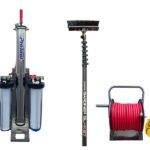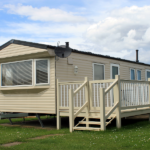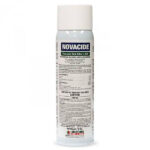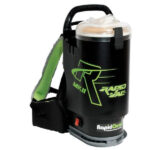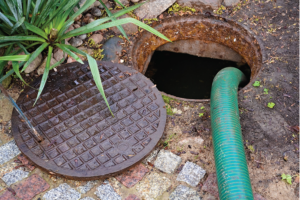
There are many ways to buy commercial property insurance, also known as business property insurance. Although, the best way to purchase commercial property insurance is to follow these steps:
- Assess your insurance needs: Before purchasing commercial property insurance, evaluate your business and property’s risks and what type of coverage you need.
- Research insurance companies: Look for insurance companies that specialize in commercial property insurance and have a good reputation for providing reliable coverage and excellent customer service.
- Compare policies: Compare policies from different insurance companies to find the best coverage and price for your needs. Make sure you understand the terms and conditions of each policy and what is covered.
- Consider the cost: Determine how much you can afford to pay for your insurance premium and what deductible amount you can handle.
- Review the policy: Carefully review the policy before signing and make sure you understand all the terms and conditions. Ask questions if anything is unclear.
- Work with an insurance agent: Consider working with an insurance agent who can help you navigate the insurance market and find the best coverage for your needs.
- Renew regularly: Keep your insurance coverage up-to-date by renewing your policy regularly and reviewing your coverage needs periodically as your business changes.
Remember, commercial property insurance is an important investment to protect your business and assets, so take the time to find the right coverage for your needs.
Comparing commercial property insurance policies
When comparing commercial property insurance policies, it’s important to consider several factors, such as:
- Coverage: Look at what is covered under each policy and what exclusions apply. Ensure that the policy covers your specific business property, including buildings, equipment, inventory, and other assets.
- Limits: Check the policy’s coverage limits, which are the maximum amount the insurer will pay out for a covered loss. Make sure the limits are sufficient to cover the value of your property.
- Deductible: Consider the deductible amount, which is the amount you will pay out-of-pocket before the insurance kicks in. A higher deductible will generally result in a lower premium, but make sure you can afford the deductible amount in case of a loss.
- Premiums: Compare the premiums for each policy and ensure that they fit within your budget. Keep in mind that lower premiums may mean less coverage or higher deductibles.
- Reputation of the insurer: Consider the reputation and financial stability of the insurance company. Look for a company with a good track record of paying claims and excellent customer service.
- Additional coverage options: Some policies may offer additional coverage options, such as business interruption insurance or flood insurance. Consider whether these options are important for your business.
By carefully comparing these factors, you can find the right commercial property insurance policy for your business needs and budget. Don’t hesitate to ask questions or seek advice from an insurance agent if you need help understanding the details of the policies you are considering.

Benefits of working with a commercial property insurance agency such as Eugene C Yates Insurance Agency
Working with a commercial property insurance agency such as Eugene C Yates Insurance Agency can offer several benefits, including:
- Expertise: An insurance agency specializing in commercial property insurance has in-depth knowledge of the industry and can offer expert advice on the coverage options available, including additional coverage options that may be necessary for your business.
- Customization: An insurance agency can help tailor coverage to your specific business needs, ensuring that you have the right coverage to protect your property and assets.
- Multiple options: An agency can provide access to multiple insurance companies and policies, giving you more options to choose from and allowing you to compare policies and premiums.
- Time-saving: An agency can save you time by doing the research and legwork for you, finding the best policies that meet your coverage needs and budget.
- Claims assistance: In the event of a loss, an insurance agency can assist you in filing a claim and navigating the claims process to ensure that you receive the compensation you deserve.
- Ongoing support: An insurance agency can provide ongoing support and advice, helping you stay up-to-date on your coverage needs as your business evolves and changes.
Overall, working with a commercial property insurance agency can help ensure that you have the right coverage for your business needs, and provide peace of mind knowing that your assets are protected.
How much does commercial property insurance cost?
The cost of commercial property insurance can vary widely depending on several factors, including:
- Type of property: The type of property you own can impact the cost of insurance. For example, a commercial property with a lot of expensive equipment will generally have a higher premium than a small retail store.
- Location: The location of your property can also affect insurance costs. Properties in areas prone to natural disasters or crime may have higher premiums.
- Coverage limits: The amount of coverage you need will impact the cost of insurance. The higher the coverage limits, the higher the premium will be.
- Deductible: The amount of the deductible you choose can also impact the premium. A higher deductible will generally result in a lower premium.
- Risk factors: The level of risk associated with your property and business can also affect the cost of insurance. For example, a business that uses hazardous materials will have a higher premium than a business that does not.
Based on these factors, the cost of commercial property insurance can range from a few hundred dollars to several thousand dollars per year. To get an accurate estimate of the cost of insurance for your specific property and business needs, it’s best to get quotes from several insurance companies or work with an insurance agent who can provide personalized guidance.
















































